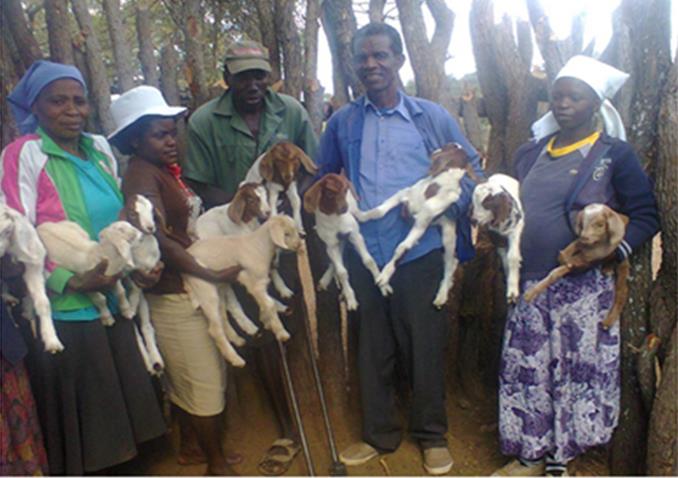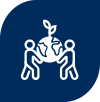Sifisimpilwenhle Community Health Club Raises Funds To Improve Their Health
In Ward 17, Gwanda, located in western Zimbabwe, a group of dedicated community members from Gohole Village are working to improve their health with the support of the USAID-funded Amalima program. The members belong to Sifisimpilwenhle Community Health Club (CHC), named from the Ndebele word meaning, “we wish for a better life.” The CHC promotes improved health and hygiene behaviors and has inspired other community members to improve their own nutrition and health.
As part of USAID’s efforts to improve nutrition and health, the Amalima program works with communities to establish CHCs, like this one, in Amalima’s four target districts of Bulilima, Mangwe, Gwanda, and Tsholotsho.
Since the program started in 2013, 415 CHCs have been established. Amalima provides a participatory health and hygiene education curriculum to train CHCs on water, sanitation, and hygiene (WASH) and on other Participatory Health and Hygiene curriculums. After members graduate, Amalima encourages CHC alumni groups to pursue income-generating activities to keep the groups together, maintain momentum for practicing good WASH behaviors, and enable groups to fund the construction and establishment of hygiene-enabling facilities, such as “tippy taps” handwashing stations, pot racks, and latrines.
The CHCs also support behavior changes in their communities around WASH practices. For groups that want to start an income-generating activity, Amalima will first provide Village Saving and Lending training on group formation, constitution development, group fund development, loans and loan appraisal, and recordkeeping so the groups can build savings to fund their activity. Amalima will then provide Selection, Planning, and Management training on starting an income-generating activity and provide ongoing support on the specific activity.
Sifisimpilwenhle CHC was formed in 2014, and members graduated from the Participatory Health and Hygiene curriculum in 2015. After graduating, 11 of the 33 club members formed a Village Saving and Lending group to fund income-generating activities breeding goats. Amalima provided targeted, ongoing support to the group by training them in goat management, including nutrition, breeding, health, housing, and goat marketing. Members started by donating two goats each (for a total of 22 goats) and have since expanded the group’s herd to over 60 goats. As most of their breeders will be kidding from April to May, they expect to increase their herd to over 100 goats.
Sifisimpilwenhle uses a portion of their Village Saving and Lending funds to support their income-generating activities and uses the proceeds to fund hygiene-enabling facilities in their homes. Members make regular contributions to their Village Saving and Lending fund to purchase supplementary feed and construct goat pens, and they purchased a Boer buck from the International Crops Research Institute for the Semi-Arid Tropics (ICRISAT) to improve their herd. Using money earned through the sale of their goats, all the members of the group have constructed latrines and set up other hygiene enabling facilities in their homes. As the group continues to sell their herd, they also hope to use the proceeds to support other community members.
One group member, Hupulang Nyathi, said that “as a group, we are prepared to drill our own borehole, if we manage to raise funds, so that we improve our health and hygiene practices. This will be an advantage to us and the surrounding community who don’t have access to adequate and clean water.”
Sifisimpilwenhle has also influenced other members of their community. The success of their goat project has inspired four other groups to form their own income-generating activities and Village Saving and Lending projects and further support nutrition and health in the area.


